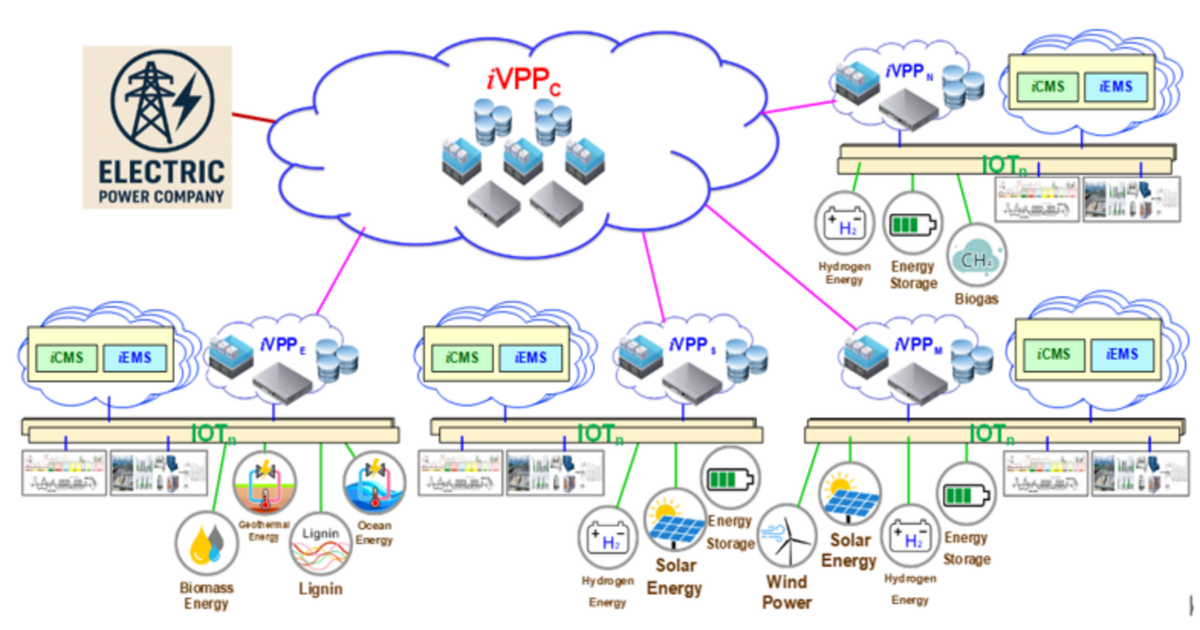- 3.2Impact Factor
- 7.3CiteScore
- 17 daysTime to First Decision
Recent Progress in Virtual Power Plants
This special issue belongs to the section “F5: Artificial Intelligence and Smart Energy“.
Special Issue Information
Dear Colleagues,
This Special Issue, "Recent Progress in Virtual Power Plants", aims to highlight cutting-edge developments, innovative strategies, and practical applications in the field of Virtual Power Plants (VPPs). As decentralized energy systems, demand response technologies, and grid digitalization continue to evolve, VPPs play a crucial role in aggregating and optimizing distributed energy resources (DERs), enhancing grid flexibility, and facilitating participation in energy markets.
This Special Issue invites original research articles, case studies, reviews, and short communications that explore recent theoretical advancements and real-world implementations of Virtual Power Plants (VPPs). Topics of interest include, but are not limited to, the following:
- Intelligent control and optimization strategies for virtual power plants;
- Renewable energy forecasting models (solar, wind, and hybrid) for virtual power plant scheduling and dispatch;
- Integration of renewable energy sources and energy storage into virtual power plants (VPPs);
- AI and machine learning-based optimization for virtual power plant control and resource management;
- Integration of battery energy storage systems (BESS) and demand-side flexibility;
- Real-time operations and predictive control frameworks;
- Applications in microgrids, smart grids, and net-zero energy communities.
We particularly encourage interdisciplinary contributions that bridge academia and industry while showcasing scalable and replicable Virtual Power Plant (VPP) solutions. Through this Special Issue, we aim to provide a comprehensive overview of recent trends and future directions in the development of virtual power plants.
Dr. Ting-Chia Ou
Guest Editor
Manuscript Submission Information
Manuscripts should be submitted online at www.mdpi.com by registering and logging in to this website. Once you are registered, click here to go to the submission form. Manuscripts can be submitted until the deadline. All submissions that pass pre-check are peer-reviewed. Accepted papers will be published continuously in the journal (as soon as accepted) and will be listed together on the special issue website. Research articles, review articles as well as short communications are invited. For planned papers, a title and short abstract (about 250 words) can be sent to the Editorial Office for assessment.
Submitted manuscripts should not have been published previously, nor be under consideration for publication elsewhere (except conference proceedings papers). All manuscripts are thoroughly refereed through a single-blind peer-review process. A guide for authors and other relevant information for submission of manuscripts is available on the Instructions for Authors page. Energies is an international peer-reviewed open access semimonthly journal published by MDPI.
Please visit the Instructions for Authors page before submitting a manuscript. The Article Processing Charge (APC) for publication in this open access journal is 2600 CHF (Swiss Francs). Submitted papers should be well formatted and use good English. Authors may use MDPI's English editing service prior to publication or during author revisions.
Keywords
- virtual power plant (VPP)
- renewable energy forecasting
- solar power prediction
- wind power prediction
- artificial intelligence
- machine learning
- energy storage integration
- distributed energy resources (DERs)
- energy management system (EMS)
- optimization algorithms
- microgrid
- smart grid
- demand response
- real-time control
- energy market participation

Benefits of Publishing in a Special Issue
- Ease of navigation: Grouping papers by topic helps scholars navigate broad scope journals more efficiently.
- Greater discoverability: Special Issues support the reach and impact of scientific research. Articles in Special Issues are more discoverable and cited more frequently.
- Expansion of research network: Special Issues facilitate connections among authors, fostering scientific collaborations.
- External promotion: Articles in Special Issues are often promoted through the journal's social media, increasing their visibility.
- e-Book format: Special Issues with more than 10 articles can be published as dedicated e-books, ensuring wide and rapid dissemination.

